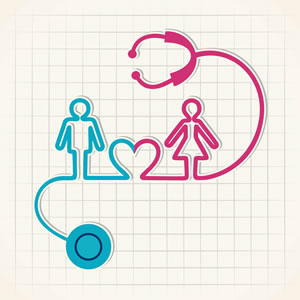Hypertension In Pregnancy
 High Blood pressure in pregnancy is a major cause of maternal death and poor foetal outcomes. It is all the more dangerous because it does not cause any symptoms till late in the course of disease.
High Blood pressure in pregnancy is a major cause of maternal death and poor foetal outcomes. It is all the more dangerous because it does not cause any symptoms till late in the course of disease.
It is estimated that 5-10% of pregnant women have higher blood pressures during pregnancy. However in most of the women, it reduces back to normal by 12 weeks of pregnancy. So by definition high blood pressure in pregnancy is taken as BP> 140/90 mm of hg.
The causes and natural history are poorly understood. It is believed that the hypertension in pregnancy is caused by some inherent problems with the placenta and some circulating factors which increase the blood pressure. A complete description of these causes is beyond the scope of this article, but it would suffice to know that hypertension in pregnancy is caused by unspecified neuro hormonal changes.
High blood pressure in pregnancy is silent till the very end when it may present with catastrophic consequences. However some of the symptoms which may be seen are swelling of feet, headache, blurred vision, pain in the right side of abdomen (over liver).
Hypertension in pregnancy is classified in to 3 categories based on presence or absence of protein in urine and fits. Simple rise in B.P> 140/90 without protein in urine is called pregnancy induced hypertension. Any degree of B.P with protein in urine is called Preeclampsia. And any B.P with fits is called eclampsia.
Since high BP in pregnancy causes symptoms late, the only way to detect this is by regular ante natal checkups. Women must get their B.P checked every month while they are pregnant. This is the only way to diagnose high blood pressure in pregnancy and save avoidable deaths.
The presence of protein in urine and fits are ominous signs and treatment should be instituted immediately. In a patient with eclampsia, termination of pregnancy is the only option irrespective of the age and maturity of the child. In eclampsia, fits are controlled using magnesium injections.
The treatment of hypertension in pregnancy along with protein in urine depends on the severity of B.P and proteinuria. Severe raise in B.P should necessitate treatment with blood pressure lowering drugs. Many such drugs are harmful for the baby and hence such blood pressure lowering drugs should only be taken under medical supervision. There are many drugs which can be used for lowering blood pressure. Some of them include Methyldopa(Aldomet), Labetolol and hydralizine.
High blood pressure in pregnancy without any proteinuria or fits is managed conservatively. Women are admitted in a ward and advised absolute bed rest. High protein and low salt diet is advised. They may also be prescribed medicines to help them relax and sleep well.
There are other non pharmacological methods to prevent high blood pressure in pregnancy. Eating a well balanced, nutritious diet will reduces chances of high blood pressure in pregnancy. So does calcium supplementation. A pregnant lady should remain calm and composed at all times. Yoga and meditation lower stress and reduce B.P. Pregnant women must get at least 30 min of moderate physical activity (walking is the best exercise in pregnancy). This will have a beneficial effect on B.P.
No specific diet has been proven superior in preventing hypertension in pregnancy. However it’s advisable to maintain salt intake at the appropriate levels required.
The key to prevent deaths due to hypertension in pregnancy is early diagnosis. It is important for pregnant women to understand the benefits of regular ante natal checkups and should follow the schedule carefully. Early diagnosis of high blood pressure in pregnancy will allow initiation of treatment and save precious lives.

